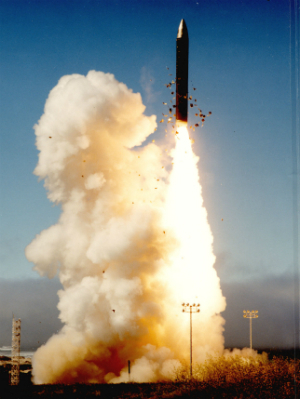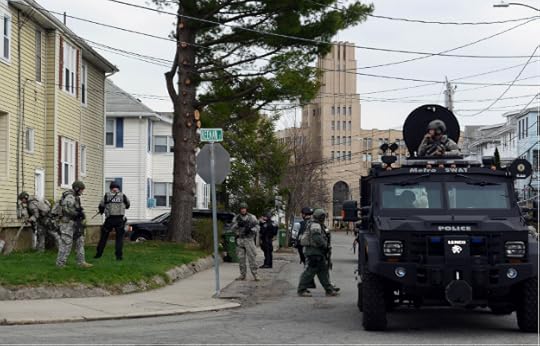Thomas E. Ricks's Blog, page 109
May 9, 2013
Reading Churchill: Was the cavalry the stupider branch of the British Army?

Winston
Churchill, writing in My Early Life,
mentions how wealth affected one's choice of branches in the British Army:
I
qualified for a cavalry cadetship at Sandhurst. The competition for the
infantry was keener, as life in the cavalry was so much more expensive. Those
who were at the bottom of the list accordingly were offered the easier entry
into the cavalry.
Tom
again: So, by making the cavalry expensive, the wealthy aristocracy was able to
reserve largely for itself job openings in part of the military -- perhaps a
place to store second sons without sufficient brains for other jobs? I asked Douglas Allen, an economic historian
who has studied the political economy of the British military. He wrote back, "No doubt though, it took a long time
for the aristocrats to be replaced by attrition, and they probably did use a
price mechanism to keep the vulgar middle class out of their preferred
positions."
The May issue of Marine Corps Gazette: Incredibly, even historically boring?

I was on riding the Washington, DC Metro
finishing the May issue of
the Marine Corps Gazette when I
realized I had not read more than a paragraph or two into any of the articles.
Part of the problem was that the topics of the issue were mainly aviation and
cyberwar, which I know are important, but are not special interests of mine. But
I also got the feeling that they simply took every boring article they had lying
around and stuffed them all into one issue.
Even so, the Gazette is better off than the Army's Parameters, which doesn't seem to have put out an issue since "Autumn
2012." Maybe it's going to publish only on an annual basis. Nice work if you can get
it.
May 8, 2013
Reflecting on Iraq: Is it a 'syndrome' or rather, perhaps, hard-earned 'wisdom'? And is there a generational break here?

My CNAS colleague Phil Carter, reacting to yesterday's item about how the experience of Iraq is affecting the Obama
administration's consideration of intervening in Syria, sent me this thoughtful note:
Iraq
has replaced Vietnam as the lens through which we see foreign policy decisions.
However, I don't like the term "Iraq syndrome" -- in large part
because it suggests there's something wrong, and that this is a condition to be
ameliorated or recovered from. Instead, I prefer to think of our
national sense of the Iraq war as "Iraq experience" or "Iraq
wisdom." We gathered this experience and wisdom the hard
way, acquiring it at a cost of trillions of dollars, and tens of thousands
of killed or wounded, to say nothing of the cost to the Iraqis. We ought
not casually discard this wisdom and experience, or set it aside so that
we can once again go abroad in search of monsters to destroy, to use
John Quincy Adams' memorable phrase.
Tom again: I think he is right, but
I think there also is a generational aspect to this. I think younger people -- and
to me, that means anyone under 40 -- are more affected by this than are older
people.
One of the great things about CNAS
is that we actually have conversations like this. In my experience, not all
think tanks do. You can find out more by coming to the annual hoedown on
June 12. It
is, as we have noted, the Woodstock of wonkery. But with better refreshments.
Air Force benches 17 missile officers, nuclear expert cites malaise in the branch

This
isn't the Air Force's week. First, its sexual assault prevention czar earns a negative congressional unit citation for alleged sexual battery. Now the
AP's Robert Burns reports that the service sidelined 17
nuclear launch officers essentially for sucking at their jobs.
Which
raises the question in my mind: Which is the worse job, being a missile officer
these days, or being a sexual harassment officer? And can you imagine being the
sexual assault officer in a missile unit in North Dakota?
More
seriously, the estimable Burns quotes Bruce Blair, a nuclear weapons expert, as warning that, "The nuclear air force is suffering from a deep malaise caused
by the declining relevance of their mission since the Cold War's end over 20
years ago....Minuteman launch crews have long been marginalized and demoralized
by the fact that the Air Force's culture and fast-track careers revolve around
flying planes, not sitting in underground bunkers baby-sitting nuclear-armed
missiles."
Can you imagine a nuclear
attack being launched simply because a unit was so incompetent that someone hit
the wrong buttons and codes? No? Well, how about a bomber crew flying across
the United States without being aware it was carrying nuclear weapons? (That
happened in 2007.)
The cop shooting: More evidence of police over-reaction in Boston manhunt

Evidence grows that the transit cop
killed in the manhunt for the marathon bombers was hit by friendly fire. This
strikes me as the third instance of over-reaction by the authorities in their handling of the situation.
(HT to LK)
May 7, 2013
White House official explains Syria policy in terms of America's Iraq syndrome

Quote
of the day: Benjamin Rhodes, the deputy national security advisor, tells Dexter Filkins in this week's edition
of the New Yorker that in considering
intervening in Syria, "Here's
what we wrestle with: there are huge costs and unintended consequences that go with
a military intervention that could last for many years."
Another White House official tells
Filkins, "The country is exhausted." I don't think that second comment is quite
accurate. It is more that the country is tired of being involved on the ground
in the Middle East and deeply skeptical of the efficacy of another try.
Filkins also quotes an academic expert
who predicts that eventually all of Syria's Alawites will be pushed into
Lebanon, with the eventual refugee flow doubling that nationette's population.
The vibe of the article is that the
Obama administration increasingly is leaning toward intervention -- from the
air, in aid and intelligence, but not with ground troops.
Time to give the Marines an overdue appendectomy: Close a boot camp, get out of fixed-wing air, and even more cuts

By Robert Kozloski
Best Defense guest
commenter
When
talking about reducing defense budgets, metaphors involving body parts abound
-- cutting the fat, giving a haircut, cutting into the muscle (even to the
bone), and tooth-to-tail ratios to name a few. Here is another -- the
appendectomy.
Natural
evolution renders the appendix as one of those body parts humans can do
without. Yet, the human body clings to it because the current model has been
that way for a long time. The Marine Corps faces a similar situation.
After
a decade of war and being aware that the size of the Marine Corps would be
reduced from surge-level highs, the USMC Force Structure Review Group
identified that the operational "sweet spot" for the Corps of the future is
somewhere between traditional army units and special operations teams.
Institutionally
committing to this sweet spot and focusing on smaller unit operations provide
opportunities for the Marine Corps to deal with the fiscal pressure facing the
entire DOD.
Some
options to consider:
Eliminate
Duplicative Headquarters: If divisions and wings are no longer the right size units,
can they be eliminated and battalions and squadrons aligned directly to MEFs
and MEBs? Could the entire 0-6 level of command in the operating forces be
eliminated?
Think
Naval:
Consolidate and integrate with the Navy. For example, the Navy Expeditionary
Combat Command was created in response to 9/11 and maintains capabilities
similar to those in a MEF. Can the two naval forces be better aligned? Should a
new Naval Expeditionary Combat Element become the fifth element of the MAGTF,
thus creating a true Naval Expeditionary Force? Could the Marines become the
naval executive agent for Irregular Warfare for the naval services, while the
Navy reciprocates for cyberspace?
SOF
Integration:
Instead of duplicating existing SOF capabilities, SOCOM should assign missions
to the MEU(SOC) while NAVSPECWARCOM could integrate all naval special warfare
capabilities. To increase the Marines' SOF presence in the future, ANGLICO
teams should replace Air Force personnel on the ground and free the USAF to
commit resources to SOF aviation requirements.
Use
the Total Force:
By requiring "Civilian Marines" to deploy to the field for administrative work,
entire military career fields could be eliminated. Non-sweet spot units
designed primarily to fight major wars should be moved to the reserves. The
Marine Corps should also close the gap between its enlisted and officers. Some
of the future high-end missions being considered for the Marines require a more
mature and specialized enlisted force.
Marine
Aviation:
The schism between Navy aviators and ground units isn't what it used to be. Could
Navy tactical fixed-wing squadrons be placed in support of Marine units to get
the Marine Corps out of the fixed-wing aviation business?
Initial
Accessions:
Close one of the two recruit training depots. If a Korea, Vietnam, or Iraq type
surge is needed, build temporary facilities at 29 Palms, CA or Quantico, VA to
augment the throughput.
Defenders
of the status quo will resist any significant change to the organizational
structure within the Marine Corps. This defense will likely involve using a flawed planning system, rich service history,
and unacceptable risk to national security as elements of the defense. However,
removing components that are no longer necessary because of the evolution to
smaller unit operations may help preserve capacity and resolve long standing
problems. Obviously, reducing force structure from the Marine Corps is a
measure of last resort and should only be considered after efforts to resolve
the excessive overhead problem within DOD have been exhausted.
Robert Kozloski is a
program analyst for the Department of the Navy and served in the Marine Corps
from 1997 to 2007. He is the author of "Marching Toward the Sweet Spot: Options for the Marine
Corps in a Time of Austerity" in the new ish of the Naval War College
Review. The views expressed are his alone.
Air Force sexual assault prevention office chief charged with sexual battery

"The
Chief of the Sexual Assault Prevention and Response branch of the U.S. Air
Force was arrested and charged with sexual battery in Arlington over the weekend."
As
several e-mailers noted yesterday, you can't make this stuff up.
May 6, 2013
The real problem in Iraq is the stalemate behind the current surge in violence there

By Joel Wing
Best Defense officer
of Iraqi statistical analysis
Iraq recently saw a huge increase in the number of attacks
and casualties in April 2013. Iraq Body Count recorded 561 deaths for the
month, the highest since August 2009, while the United Nations reported 712
killed, the most since June 2008. That caused Prime Minister Nouri
al-Maliki to go on national TV to call
for calm, and warn against the rise of sectarianism and violence. (3) The
cause of the deterioration in security is the combination of an ongoing
offensive by al Qaeda in Iraq (AQI), and retaliatory attacks by other insurgent
groups for the government raiding a protest site in the town of Hawija in
Kirkuk province. The former will eventually end, while the latter could lead to
increased support for militants. Either way, it appears that talk of a renewed
civil war is premature. Yes, militants are becoming more active in the country,
but they are for the most part isolated in certain areas; Shiites are relying
upon the government to respond to them rather than militias, and the majority
of the population is going about their business.
Al Qaeda in Iraq launched its latest
offensive in December 2012. That was marked by increased casualty rates,
high profile, mass casualty attacks, and bombings in southern parts of the
country. On April 29, for instance, two car
bombs went off in central Karbala, two
more detonated in Amarah in Maysan governorate, followed by another
vehicle-based device exploding in Diwaniya the next day. Operations in
southern Iraq are a hallmark of AQI's offensives, and take advanced planning,
intelligence gathering, and the stocking of supplies, because they take place
outside of where the group usually works. Recently, al Qaeda has been able to launch
larger offensives and sustain them for longer, because they have witnessed an
increase in fighters, and a lack of resistance by the Iraqi security forces.
After the U.S. withdrew in 2011, it emptied its prisons leading to many
detainees going right back to fighting. The Iraqi army and police also no
longer carry out counterinsurgency operations after the exit of the Americans,
and are more of a reactive force now carrying out raids and mass arrests, which
cannot prevent attacks, and cause resentment against those areas that are
targeted. This campaign will eventually end, likely in a month or two, as AQI
runs out of supplies and has to restock. That will cause a decrease in deaths,
until it ramps up again in the summer as it has during the last few years. The
media usually misses this ebb and flow in insurgent operations, focusing
instead upon the monthly casualty totals, rather than analyzing the larger
trends.
Another source of increased instability is the reaction to
the government's raid upon a protest site in the town of Hawija. On April 23,
Iraqi security forces moved
into the camp looking for assailants who had attacked a nearby checkpoint,
which killed one soldier and left three wounded. The demonstrators had been
given an ultimatum to turn over the attackers, but did not respond. The
organizers were also connected to the Baathist Naqshibandi Army insurgent group,
providing another impetus for the government to act. Following the raid,
protesters and militants carried out a series of retaliatory strikes across
Anbar, Salahaddin, Diyala, Ninewa, and Tamim provinces, while several activists
said they were giving up peaceful protests and taking up armed opposition to
Baghdad. This is far more dangerous than the al Qaeda in Iraq offensive because
it could mark a sea change in public opinion amongst some Sunnis. Some protest
leaders like Sheikh Abu Risha of the Awakening Movement in Ramadi have called
for moderation since the Hawija incident, but the vast majority is pushing
for arming themselves, at least in self-defense, if not outright opposition to
the government of Prime Minister Nouri al-Maliki. This could turn many young
Sunni men towards militancy, and give groups like the Naqshibandi and the
Islamic Army of Iraq a new source of support and recruitment. These
organizations have a much broader appeal to Iraqis than al Qaeda, because they
have presented themselves as nationalist groups out to protect Sunnis from the
Shiite government, rather than being part of a global jihad against the West.
If the insurgents are able to make headway with the demonstrators, that could
increase violence over the long-term.
Still, the combination of al Qaeda in Iraq's offensives and
growing support for the wider insurgency does not mean that Iraq is heading
towards a new civil war. First, most
operations by militants are in specific cities, and even then only affect a
small percentage of the population. (10) Even cities like Baghdad,
that have the largest number of deaths, might only have 100-150 per month out
of population of over 7 million. Fallujah and Ramadi in Anbar can see a steady
stream of dead and wounded each month, while Haditha and Rutba hardly have any
throughout the entire year. This localized nature of violence means that the
vast majority of Iraqis are not affected unless they live in certain areas or
neighborhoods. Second, the Iraqi civil war from 2005-2008 was marked by Sunni
insurgents being met by Shiite militias. So far, the Shiite community is
relying upon the government to take care of security rather than taking matters
into their own hands. This is despite constant efforts by al Qaeda in Iraq to
incite them by bombing every religious holiday and event. All together that
means that Iraq is in for a rough immediate future with casualty figures likely
going up, but it is nothing
like the peak of violence when Sunnis and Shiites were at each others'
throats and large swaths of the country were being cleansed. The real problem
in Iraq is not the activities of the insurgency, but rather the political
deadlock in Baghdad. That's likely to take a generation to resolve, and should
get a lot more attention than the daily images of bombings and shootings in the
country.
Joel Wing is an Iraq
analyst at the
Musings On Iraq
blog.
Canadian base commander charged with sex assault and drunkenness, put on shelf

Well, there had been some
warning signs: Just over a decade ago he was charged with showing his homemade
porn to cadets, but got off for lack of evidence, even though his voice could
be heard on the tape saying "get her while she's drunk." The camera was
hidden inside a "stuffed
bear," according to the Edmonton Sun.
I ask
again: What kind of outfit you running up there?
Meanwhile, in the
last refuge of scoundrels department, an Ohio woman named Cari Johnson, who
raised charity money via the "First
Annual Patriotic Freedom Ride" last
year, was found to have used some of the donated money at liquor stores. She'll
pay a $20,000 fine.
(HT to MY)
Thomas E. Ricks's Blog
- Thomas E. Ricks's profile
- 437 followers



